Pandemic may spur shift from management to franchise19 AUGUST 2020 7:00 AM
Will the hotel operations model, post-COVID-19, shift more in favor of operators?

By Scott Antel
In a recent hotels webinar conference, several U.S.-based panelist predicted the post COVID-19 environment would shift the owner-operator power balance more in favor of operators. The logic was the pandemic would result in even greater consolidation of operator companies and the resulting market concentration would increase the operators’ bargaining positions.
Whilst no one would argue with the economic rationale that market concentration typically bestows on the remaining players stronger bargaining positions, in the branded hotel sphere, this assumption may be mitigated by other factors.
My sense is that we are going to see hotel owners demanding a far greater say in the operational (particularly cost) side of the business, suggesting an increased desire to move from management to the franchise model of hotel operations.
 |
I say this based on discussions with many owner clients who—even pre-pandemic—were increasingly frustrated by their operators’ near slavish attention to brand standards compliance irrespective of the then relevant economics and lack of rigorous management of the cost side of the business. These concerns will only grow post pandemic, since a hotel will almost certainly be a less profitable business than before and cost more to operate given—either temporary or long term—decreased sales density in F&B/other outlets, added hygiene and other social distancing protocols and likely decreased customer demand and spending power.
This would suggest increasing interest by hotel owners (particularly outside the US where the franchise model is less common) to consider the conversion of existing hotel management contracts to franchise. There is particular logic for this shift in operational model for both owners and operators.
For the brand operators, the benefits of franchise over management can be:
- The brand can make 70% or more of the fees through the franchise model vs. management with far less capital and time investment, thus freeing up further resources to pursue their primary brand expansion objective.
- Brand operators with franchise experience will openly acknowledge that franchise typically yields them higher profitability than managed hotels and without the added time and investment—and headaches—of managing owner relations.
- Franchises can particularly be attractive in emerging markets where the large brands have legal compliance concerns or where they simply lack the local knowledge or on-ground scale presence to know the market, although for a franchise model to work there must be some local management expertise (owner or third party) to ensure reasonable brand standard compliance.
- And, let’s admit the franchise model more accurately reflects the “asset-light” business model of the major brands today; that is they no longer manage hotels, but rather brands and distribution systems.
For hotel owners, the move to the franchise model offers the owner greater control benefits over the hotel asset insofar as:
- managing the cost side of the business, including operational and capex expenditure;
- budgeting and pricing as well as product sourcing and purchasing, areas where a local owner can often be (save for specific brand items) more attuned about supply sources than the operator;
- selecting a GM and finance director who know the local market and its vagaries better than those recommended by the operator for selection and who quite often are parachuted in to a region they have never been or whose language they may not speak; and
- the ability to exercise a more prioritized approach to brand standard compliance to those that are essential (e.g., legal or fire & life safety), desirable or good to have and those standards which may be deferred for a later time taking into consideration the state of the items to be replaced and the current financial performance of the hotel.
Also, for owners with multiple hotels, franchise offers the ability to cluster operations and achieve significant scale economies on back of house activities, staffing and purchasing. With the increasing trend of hotel owners owning multiple properties, owners may also see the benefits of developing their own in-house hotel management capacity or avail of the growing number of third-party or “white-label” operators able to offer shorter and more flexible terms than the brand operators.
Of course, the argument against third-party operators is that you pay more in fees when you combine the third-party management fees and the brand franchise fees. However, in my experience, the third-party operator most often was able to deliver a better bottom line for the owner that more than offsets the additional fees paid.
They achieve this through more detailed departmental reporting than what the major brands provide, as well as more locally experienced staffing. And their more “owner-centric” focus, best described to me by a long time white-label operator client who said, “The difference between me and the brand is that I primarily work for the owner and the brand works primarily for the brand.”
Of course any owner opting for the third-party management model should seek to secure a guaranty from the third-party operator that they will waive their fees to the extent that the owner’s return after the deduction of the management and franchise fees is not less than if the hotel were directly managed by the brand operator. Many third-party operators will agree to this.
As for other factors to consider when contemplating a move to franchise operation, hotel owners with existing management contracts need to check if their management contract allows for a conversion option, while those negotiating new management agreements need to try and secure such rights. If there is no conversion right, it will be necessary to negotiate such a conversion by offering the existing brand operator incentives such as enhanced investments to the property, an increased term or renewal rights and, of course, providing the brand comfort that the proposed franchised operator team has the requisite expertise to manage the hotel to the brand standards.
Owners seeking a franchise conversion also need to beware of—and negotiate down or eliminate—certain common franchise conversion conditions often imposed by the brands. For example, the typical franchise “application fee” for the brand to review and consider the proposed property and franchisee/operator. This should not apply on a conversion since the brand already knows you and the property.
Franchise conversions also often trigger a full property improvement plan (PIP). This should be negotiated away—or reduced down—when the property is new or has recently undergone a major refurbishment.
Unlike management agreements, franchise agreement do not allow for a performance test termination right to enable the owner to remove a non-performing brand, since the owner is the one running the hotel. However, the essence of what a franchisor offers is the power of the brand and distribution system, so seeking a modified performance test based on some minimum system delivery percentage by the brand makes sense.
Finally, franchise agreements typically have far more restrictive owner rights of sale than management agreements. Try not to have these watered down or be any less than the standard for management agreements (so long as not a prohibited party), especially if a disposal is contemplated anytime soon. After all, the hotel is your asset and investment, and you should have full say in what to do with it.
With the increasing need for cost focus in operating hotels post pandemic, the law of comparative advantage certainly argues in many cases for hotel owners opting to operate their hotels under the franchise model as opposed to management. Assuming of course, you have the requisite management skills, combined with likely more local market know how, one arguably ought to be more focused and able to run your own asset better than having it outsourced to an independent brand operator.
And from the perspective of the brand operators (at least the major players), the franchise model more accurately reflects what is essentially their business model today: managing brands and delivery systems. So a potential win-win proposition and an operating model we are likely to see increasing owner interest in going forward.
Scott Antel is an emerging markets hotels and hospitality lawyer. Contact him at Antelscott@gmail.com.
The opinions expressed in this blog do not necessarily reflect the opinions of Hotel News Now or its parent company, STR and its affiliated companies. Bloggers published on this site are given the freedom to express views that may be controversial, but our goal is to provoke thought and constructive discussion within our reader community. Please feel free to comment or contact an editor with any questions or concerns.

